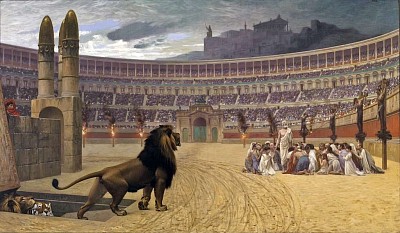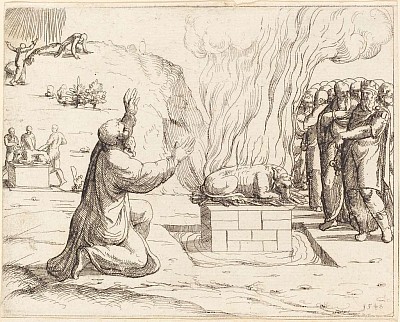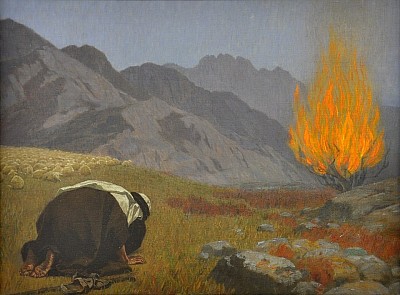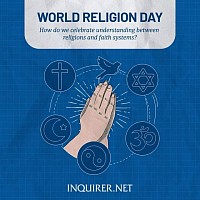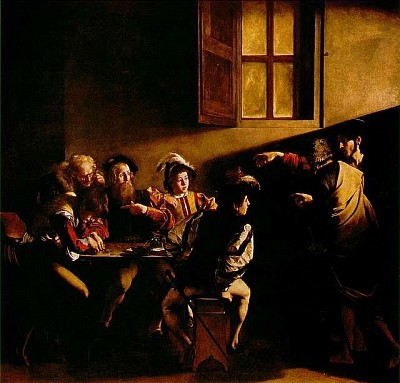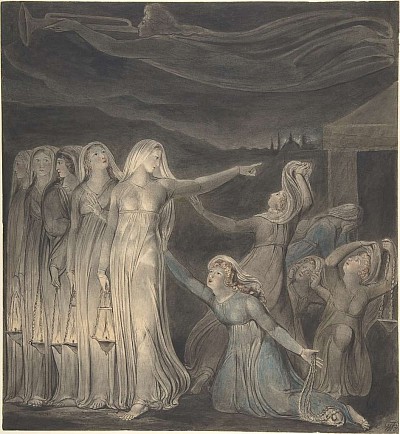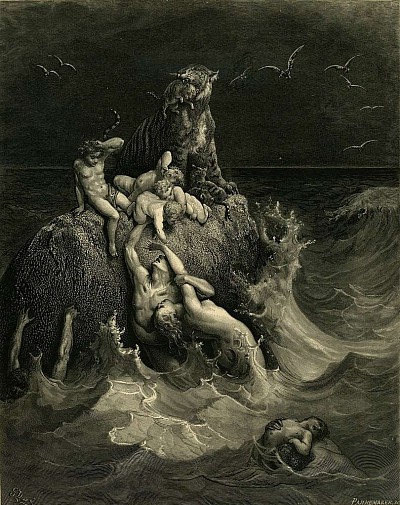Blogs
The Narrow Road Has No Spotlight
Once, truth was a lamp burning in a dark cave. Now it flickers on screens, trimmed and filtered till it flatters every eye that looks upon it. Once, the prophet stood alone, trembling before God. Now, he poses before cameras, trembling only before the loss of his audience.
We have come to mistake noise for nearness, applause for anointing, and visibility for victory. But Heaven keeps a different score.
The Apostle Paul had no followers but those who would follow Christ. He had no “platform,” only prison walls echoing with psalms. He never asked Rome for permission to speak; he only asked God for utterance. He had no brand, no marketing team, no lighting but the glow of the Spirit. Yet he left behind letters that shook empires and still set men free. How strange that a man with chains had more power than a generation with microphones.
We have forgotten that the gospel was first whispered in catacombs, not broadcast in stadiums. God’s fire falls on altars, not on stages. His prophets are made in Gethsemane, not in greenrooms. The world crowns celebrities. God crowns crucified men. And the crown He gives is made of thorns.
“For they loved the praise of men more than the praise of God” (John 12:43). That verse reads like a headline for our age. We build churches that shine like theaters and preachers that sound like politicians. Yet the Spirit still seeks those who will weep rather than perform, who will burn rather than trend.
Let us not be deceived: the narrow road has no spotlight. The cross has no fanbase. And the true servant of Christ may die unknown, yet be greeted in Heaven with thunderous joy. Turn off the music of the mob and listen for the still small voice. It does not flatter. It does not sell. But it saves. Better to be God’s voice in the wilderness than man’s echo in the crowd. For the world is not moved by echoes. It is waiting, still, for fire.
Rise and Fight, While It Is Yet Day
The Church was never meant to be a place for the half-asleep. It is not a hotel for tired souls, but a fortress for those who will fight. Yet how many of us, when the trumpet sounds, simply pull the blanket over our heads?
We say we believe in spiritual warfare, until the first arrow flies. Then we find that we prefer comfort to courage, leisure to labour, and applause to obedience. We have made a sanctuary of slumber. But the cross was never meant to be carried lying down.
The world, I fear, is far more awake in its rebellion than we are in our faith. Hell has no holidays. The enemy never naps. He marches on, tireless and cunning, while we debate whether it is worth missing a meal to pray.
We read of saints who turned the world upside down, yet we cannot even turn off our distractions for an hour. Has the Spirit grown weary? Has Heaven lost its might? Certainly not. It is we who have lost our hunger for holy fire.
It is no new Pentecost we need, but new men. The same Spirit that filled the apostles waits still to fill us. But He cannot fill what is already full: full of self, full of vanity, full of excuses. “Whom shall I send, and who will go for us?” (Isaiah 6:8). God’s question still thunders through the ages. And still we hesitate. For His call always sounds like the death of our comfort.
We admire martyrs, but only from a safe distance. We frame their words, but not their wounds. We sing of the cross, yet flee from its splinters. Tell me, did Christ die to make us cozy? Was His crown of thorns meant to guarantee us a pillow of ease? He calls us to battle, and we ask for peace. He calls us to sacrifice, and we ask for safety.
The truth is plain enough: lukewarm souls will never set a cold world on fire. “The kingdom of heaven suffereth violence, and the violent take it by force” (Matthew 11:12). Yet we are content with polite religion and predictable prayers. We speak of zeal as though it were bad manners. But a man aflame for God needs no permission to burn.
Oh, for hearts that blaze again! For men whose prayers make hell tremble and whose holiness makes sin uncomfortable! Such men do not ask for entertainment. They do not wait for applause. They are consumed, utterly, by the glory of God and the weight of eternity. We have lingered long enough in the nursery of faith. The time for milk is past. The world bleeds. The harvest waits. The hour grows late. The Spirit still calls. The trumpet still sounds.
Will you rise—or roll over?
For though this world will pass away, the souls of men will not. And I tell you truly: the day is coming when the sleepers shall wake, but too late to fight. Better to wake now, while there is still a war to win.
The Remnant That Will Not Fall
There was once a time when men thought more of truth than of numbers. They cared little how many stood with them, so long as God did. But in our day, the tide has turned. The Church has begun to measure her strength not by her faith, but by her following. We speak less of conviction and more of convenience. And so, in many places, the faith that once turned the world upside down has itself been turned upside down.
It is a strange sight indeed, to see men erect cathedrals upon sand, while the Rock of Ages lies neglected beneath their feet.
They say, “We must change with the times!” as though the Eternal had grown old, and His Word were a garment that needs mending. But truth does not wrinkle. It does not rust. It is not subject to fashion.
Christ said, “Heaven and earth shall pass away, but my words shall not pass away” (Matthew 24:35). And if His words will outlast the stars, why should we trade them for the applause of an hour?
There is a kind of religion now that offends no one, corrects nothing, and demands nothing. It is very popular. It builds wide doors and soft pews. Its sermons are smooth as silk and just as strong. The cross it preaches has no splinters, and the blood it speaks of has no power to cleanse. Yet it fills the halls and swells the songs. People call it “progress.” Heaven calls it treason.
The Apostle foresaw this when he wrote, “For the time will come when they will not endure sound doctrine; but after their own lusts shall they heap to themselves teachers, having itching ears” (2 Timothy 4:3).
We are living in that time. And how loudly those itching ears have scratched! They have invented a gospel that soothes rather than saves, comforts rather than convicts, entertains rather than transforms.
But let us be clear: truth is not decided by majority vote. It does not change because the crowd changes its mind. If the Church becomes a friend of the world, she ceases to be the Bride of Christ. Better to be a despised remnant that clings to the Rock than a mighty multitude that dances upon the sand. When the storm comes—and it will come—every man will discover what foundation he has built upon.
“The rain descended, and the floods came, and the winds blew” (Matthew 7:25). Those words are not poetry. They are prophecy. The storm will strip away every disguise. Then shall the house built on Christ stand unmoved, while all else falls into ruin.
Do not fear if your company is small. Truth has often walked a lonely road. “Fear not, little flock,” said our Lord, “for it is your Father’s good pleasure to give you the kingdom” (Luke 12:32). The remnant may be few, but they are known of God. And that is better than being known of men.
So then, stand firm. Stand though the crowds mock and the powers rage. Stand though others call you narrow or old-fashioned. Stand though the night grows darker. For the Rock beneath you will not move.
When the storm has passed and the winds are spent, the ruins of falsehood will lie buried in the sand. But the remnant shall still be standing—quiet, steadfast, unshaken—upon the Rock that never crumbles.
The Fire of Holiness
We speak of holiness as though it were a museum word, something meant for glass cases and whispered admiration. Yet holiness was never meant to be admired. It was meant to burn. It is the flame that devours the dross, the fire that tests the gold.
Men fear that fire, for it strips us bare. It leaves no shadow where pride may hide.
The world laughs at holiness. The half-hearted Christian shrugs it off as too “old-fashioned.” But the laughter of the world and the excuses of the lukewarm will not change the fact that the God of Sinai has not grown old. He still thunders, “BE YE HOLY; FOR I AM HOLY” (1 Peter 1:16). He still calls us to climb the mountain of His presence, and the way upward is always through fire.
Have we forgotten that “without holiness, no man shall see the Lord” (Hebrews 12:14)? Heaven is not for the casual believer, nor for the one who loves sin and merely dislikes its guilt. The prophets trembled before His glory. Yet we, in this age of comfort, have learned to smile where they once fell on their faces.
We treat the Holy One as though He were common. We speak lightly of grace but rarely of repentance. We pray for blessings, not cleansing. But the God who burned in the bush and yet left it living (Exodus 3:2) still burns to make His people pure. His mercy is a furnace: never cruel, but never tame.
How long shall we play with sin and call it freedom? How long shall we trade the eternal for the momentary, the sacred for the cheap? We sing of revival, yet flee from the very fire that would bring it. Revival is not a breeze of emotion. It is a purging flame. “Who may abide the day of His coming?” asked Malachi. “For He is like a refiner’s fire” (Malachi 3:2).
Mark this well: the fire will come. It always does. It will burn the chaff from the wheat, the lie from the truth, the false from the faithful.
And what of the lukewarm? They will sit still, comfortably unbothered, until the flame reaches them. They call the narrow way “too extreme.” But the God of Sinai still speaks, and His voice still shakes the earth. He calls us to tear off the soiled garments of compromise and ascend.
Up there, where fleshly comfort ends and holiness begins, He refines His people. He does not destroy. He transforms. “For our God is a consuming fire” (Hebrews 12:29).
What shall we do, then? Pray. Not for comfort, but for cleansing. Cry out, “Burn, O Lord! Burn away our apathy, our love for the world, our hidden idols. Kindle in us the flame that never dies.”
Holiness is not an accessory to the Christian life. It is the Christian life. It is the mark of those who walk with God.
And here is the unvarnished truth: If we are to meet the God of holiness, we must first be willing to be consumed.
The hour is late. The fire is waiting. Let it burn.
What Are We Building That Will Last?
What are we building, my friends?
Day by day, we lay brick upon brick—plans, careers, reputations—hoping to make something that looks impressive enough to be called a life. Yet I sometimes wonder if we are building cathedrals of faith or mere towers of vanity.
For this world, though dazzling, is no friend to grace. It flatters the builder who climbs high, but it cares little if his ladder leans against the wrong wall. We chase applause as though it were air, yet it fades the moment we grasp it. The cheers of men are like the wind. Warm for a moment. Then gone.
“For what is your life? It is even a vapour, that appeareth for a little time, and then vanisheth away” (James 4:14).
The truth is simple: most of us are too busy shaping our sandcastles to notice the tide coming in. We work hard for things that sparkle under the sun but dissolve under the weight of eternity. Power, praise, comfort. None of these will survive the fire that tests every man’s work. “For the day shall declare it” (1 Corinthians 3:13).
Only what is built upon the Rock will stand.
Let us, then, build wisely. Let us trade the vanity of earthly success for the quiet strength of eternal purpose. The true currency of heaven is not gold or fame but the redeemed soul and the obedient heart. “What shall it profit a man, if he shall gain the whole world, and lose his own soul?” (Mark 8:36)
Look about you. The hour is late. The scaffolding of human pride is trembling. Every work—mine, yours, theirs—shall be tested by holy fire. What will remain of us when the smoke clears?
“The fire shall try every man's work” (1 Corinthians 3:13).
Let us, therefore, seek first the kingdom of God and let all else take its proper place. The unseen foundations are what truly matter. The deeds done in humility and faith: these are the stones that last forever.
For the echoes of eternity begin in the quiet choices of the heart.
So I ask again, and let the question trouble your peace as it does mine: What are we building that will last when the fire falls?
The Ache Beneath All Thirsts
Man is thirsty. That is the first fact. Before he ever lifts a cup to his lips or scrolls through a screen, there is an ache—deep, dull, and constant—crying for something more.
The world, of course, offers him a thousand drinks. Some fizz, some burn, all promise delight. Fame, pleasure, wealth, applause. Each holds out a shining glass and says, “Drink me.” And we do. Again and again. But after the show is over, after the noise fades, after the final click, what remains? Only the thirst, hungrier now than before. “The eyes of man are never satisfied” (Proverbs 27:20).
It is not that the world gives too little, but that it gives the wrong thing. You can drink seawater by the bucket, but you’ll die all the faster. So with the world’s delights: the more you consume, the more parched your soul becomes. There are millions walking the earth who look well-fed, yet are dying of a thirst they cannot name.
God once said through His prophet, “They have forsaken Me, the fountain of living waters, and hewed them out cisterns, broken cisterns, that can hold no water” (Jeremiah 2:13). That is the human story in one verse: our clever rebellion. We build splendid wells that leak. We make fountains that cannot flow. We drink from them proudly, calling our poison progress.
Christ comes quietly into this madness and says, “Whosoever drinketh of the water that I shall give him shall never thirst” (John 4:14). Mark that: never. It is a word the world cannot say. Every other spring dries up. This one never does. Yet how strange that we hesitate! We would rather sip from the gutter of our own pride than kneel beside the fountain of grace.
That is sin in its purest form. Not crime, but preference. We prefer the taste of dust to the taste of God.
Look around: our churches are crowded, but our souls are empty. We sing about rivers of life, yet our altars are dry. We have learned to perform religion without ever meeting its Object. And all the while, Heaven cries, “Ho, every one that thirsteth, come ye to the waters” (Isaiah 55:1).
The trouble with us is not that we thirst. It is that we thirst for the wrong thing.
You see, the man who longs for holiness suffers, but he lives. The man who trades that longing for comfort dies, but dies politely. The one who truly thirsts for God will crawl if he must, stumble if he must, but he will come. He cannot not come. For to thirst for God is already to have begun to find Him.
“As the hart panteth after the water brooks, so panteth my soul after thee, O God” (Psalm 42:1). That cry is not religion, but life itself waking up. And once you have awakened, you cannot go back to sleep among the shadows.
The question, then, is simple: what fountain are you drinking from? The world’s water dulls the pain but deepens the disease. Christ’s water hurts before it heals. It exposes before it fills. But it alone gives life. “Blessed are they which do hunger and thirst after righteousness: for they shall be filled” (Matthew 5:6).
So drink deeply. Drink desperately. Don’t sip as though trying Him on for size. Drink as a dying man drinks rain.
For the day is coming when all false wells will run dry, and only one fountain will remain. “And whosoever will, let him take the water of life freely” (Revelation 22:17).
Come thirsty.
Come trembling.
Come now.
Before the thirst becomes eternal.
The Mirage of Peace
So this is what they call “World Religion Day”? A splendid little festival, I suppose, where men congratulate themselves for their broad-mindedness. A polite handshake with every altar under heaven. A feast where truth is served thin and sweet, so that no one chokes on conviction.
But what is there to celebrate? Have the idols stepped down from their thrones? Has the cross ceased to offend? Do we imagine that the living God is honored when we treat His Word as one melody among a thousand discordant tunes? “For there is one God, and one mediator between God and men, the man Christ Jesus” (1 Timothy 2:5).
The trouble is not that men believe too little, but that they believe everything. They sip from every cup, as though all drink were clean. They kneel at every shrine, hoping one might work. They call this “understanding.” I call it confusion.
Truth, you see, has never been democratic. It does not bow to majority vote. It stands, unbending and solitary, while the world clamors for compromise.
And yet, the world still cries for peace. Poor souls! They dream of harmony while rejecting the only chord that can make music. They seek calm in the chaos of their own inventions. But peace cannot be stitched together from a patchwork of lies. It comes only from the torn body of the one true Mediator.
“Think not that I am come to send peace on earth: I came not to send peace, but a sword” (Matthew 10:34). The sword of Christ is sharp. It divides truth from error, light from darkness, the living from the dead. It is not cruelty, but surgery. It cuts to heal.
So when the world praises tolerance, I ask: tolerance for what? For poison in the cup? For termites in the timber? “Ye cannot drink the cup of the Lord, and the cup of devils” (1 Corinthians 10:21). There are no mixed tables in heaven.
Let them have their parades of pluralism if they must. But let it be known that peace built on deceit is no peace at all. It is only the silence before the storm. “For my people have... hewed them out cisterns, broken cisterns, that can hold no water” (Jeremiah 2:13).
True peace begins when men stop pretending that all gods are equal, and bow to the One who is not. “Neither is there salvation in any other” (Acts 4:12). There is Christ, or there is nothing.
Let us not be timid. Let us not whisper the Gospel as though ashamed of its clarity. Speak it plainly, live it boldly, and let the fire of love—not pride—drive us to proclaim the truth. For only one kind of peace endures: “And the peace of God, which passeth all understanding, shall keep your hearts and minds through Christ Jesus” (Philippians 4:7).
That peace may offend, but it will never deceive.
The Wounded and the Worthy
There is little glory in a spotless name if it bears no scar for the sake of Christ. The saints of old were not known for polished manners or soft living, but for wounds that sang of battles fought in love and loyalty. They bled for a banner the world could not see, and counted it joy.
We, however, live in gentler days, or so we think. We polish our image, we guard our comfort, and we fear more the sneer of men than the frown of God. Yet Scripture pierces through our illusions: “For they loved the praise of men more than the praise of God” (John 12:43).
The Christian life is no spectator’s sport. It is a campaign: a grim, glorious struggle where courage is forged in obedience and tested in fire. “Thou therefore endure hardness, as a good soldier of Jesus Christ” (2 Timothy 2:3).
The marks of Christ are not medals of gold, but wounds of faithfulness. Every blow borne for righteousness is a badge before Heaven. Better to limp into glory with holy scars than to stroll through life untouched, admired, and useless.
Even our Master was not spared. The hands that healed were nailed. The feet that walked in holiness were pierced. “And he that taketh not his cross, and followeth after me, is not worthy of me” (Matthew 10:38).
Do not waste your days chasing the world’s applause. The clapping will fade and the crowns will rust. But the scars of service will shine forever under the gaze of the King.
Let the Spirit burn away the small ambitions that tether your soul. Let Him set your heart ablaze with the cry, “For to me to live is Christ, and to die is gain” (Philippians 1:21). Only love strong enough to die will truly learn how to live.
For every scar borne in faith becomes, in time, a jewel in your crown. “Be thou faithful unto death, and I will give thee a crown of life” (Revelation 2:10).
Rise, soldier of Christ. Do not fear the wound that comes from loyalty. For in the end, the scarred shall be the crowned.
The Unfenced Mind
The tragedy of this generation is not that it cannot think, but that it will not think God’s thoughts after Him. We have fenced in our minds with trivialities and shut out the thunder of eternity. The average Christian lives on spiritual breadcrumbs while the banquet of divine revelation goes untouched. “My people are destroyed for lack of knowledge” (Hosea 4:6), not because knowledge is scarce, but because hunger is.
Where are the men whose minds have been scorched by the fire of holy truth? We have more books, more sermons, more noise, and yet less depth, less reverence, less God. We have trained minds but untrained spirits. Oh, for a generation that trembles again at the Word of God! “The fear of the LORD is the beginning of wisdom” (Proverbs 9:10), and until we return to that fear, our theology will be a skeleton and our worship a shadow.
We need thinkers who walk with God, who have seen the Invisible and heard the eternal hush. Our minds must not be playgrounds for the world, but battlegrounds for truth. “Set your affection on things above” (Colossians 3:2), not on the glittering rot of this dying age. A mind rooted in eternity cannot be seduced by the passing perfume of time.
Tear down the fences. Rip out the posts of comfort, burn the gates of carnal logic. Let the Word of God batter down every proud wall, until we see as He sees, think as He thinks, and love as He loves. “Be ye transformed by the renewing of your mind” (Romans 12:2), not refurbished, but transformed! God does not want decorated minds, but disciplined ones that have stood in the blast furnace of divine holiness and have come out branded for eternity.
Think, man! But think with a heart burning for heaven. Let your mind stretch until it aches under the weight of God’s glory. This world is dying of shallow thought. Let us be men aflame with eternal vision: minds unfenced, eyes lifted, and hearts bowed.
Loneliness with God: A Sacred Solitude
There is a loneliness that ought to be cherished: loneliness with the Almighty. It is a sacred retreat, where the soul is stripped of the world’s noise and distractions, left only in the presence of the Holy One. In that solitude, we commune with God as Abraham did when he stood before the Lord, pleading for the righteous in Sodom (Genesis 18:22-33). It is there that we are molded, chastened, and renewed. “Be still, and know that I am God” (Psalm 46:10). Such stillness is not weakness, but strength drawn from the very throne of grace.
Yet how often we flee from that holy loneliness, rushing instead into the company of men, craving their approval, their companionship, their laughter! Beware! The fellowship of the faithless is a breeding ground for spiritual decay. “Be not deceived: evil communications corrupt good manners” (1 Corinthians 15:33). How many souls have traded their holy solitude for the festering poison of worldly camaraderie, drifting further from the voice of God with every passing jest? We find ourselves diluted, our zeal dampened, our fire quenched by the cold waters of compromise.
Elijah knew the price of standing alone with God. He was not among the masses when he called down fire from heaven, but alone upon Mount Carmel, confronting the faithless multitudes and their prophets of Baal (1 Kings 18:21-39). Loneliness with God gave him the courage to stand, though a nation had fallen to apostasy. And shall we, in this present age, fear to stand alone when the crowds clamor for comfort and ease?
The modern Church too often prioritizes fellowship over truth. She seemed to have forgotten that “friendship with the world is enmity with God” (James 4:4). We are called to a higher standard, not to seek the approval of men but the favor of the Almighty. “What concord hath Christ with Belial? or what part hath he that believeth with an infidel?” (2 Corinthians 6:15). If the path to holiness means we walk it alone, then let us walk it with the assurance that we are never truly alone. “I will never leave thee, nor forsake thee” (Hebrews 13:5).
There is, of course, a fellowship that is life-giving, a gathering of saints who strengthen one another in the faith (Hebrews 10:24-25). But be discerning, my friends. Not every fellowship that bears the name of Christ is rooted in the fear of the Lord. Beware the gatherings where truth is compromised, where the Word is watered down, where men speak much but say little. In such places, spiritual sickness festers, and the soul withers in its pursuit of holiness.
Do not fear the lonely path of truth. It may be narrow and winding, and few may walk it with you. But the company of the Almighty far outweighs the approval of men. “For what is a man profited, if he shall gain the whole world, and lose his own soul?” (Matthew 16:26). Better to be alone in the desert with God than in a palace of lies with a multitude.
Seek the solitude where God speaks, where your heart may be still and your soul set aflame once more. And when you return to the fellowship of men, let it be with a fire that cannot be quenched, a light that cannot be dimmed, and a resolve to stand, even if you must stand alone.
Awaken the Sleeping Soul
The world is starving, not for bread alone, but for righteousness, for a goodness that reflects the very heart of God. Yet, too many within the Church sit idly by, spectators in a dying world, as though the mere knowledge of the gospel were sufficient. Oh, how it grieves the Spirit of God! “To him that knoweth to do good, and doeth it not, to him it is sin” (James 4:17). We were not called to warm the pews or applaud from the sidelines while a few labor in the fields. Christ Himself did not merely observe. He acted. His hands healed, His words cut like a sword, and His feet carried Him to the despised and the broken.
Mediocrity has become a silent killer in the Church today. Too many have settled for a comfortable Christianity, content with doing the bare minimum, hoping to slip quietly into heaven. But I tell you this: mediocrity will not stand in the day of reckoning! “So then every one of us shall give account of himself to God” (Romans 14:12). What will you say in that hour? That you lived safely, did nothing to disturb the peace of the world, and left no mark for the Kingdom of Heaven?
God is not looking for spectators. He is seeking disruptors, those who will trouble the status quo of darkness with the brilliance of His light. He is searching for men and women of holy courage, those who will “cry aloud, spare not, lift up thy voice like a trumpet” (Isaiah 58:1), and refuse to let this world sink into greater depravity without a fight.
The great day of the Lord is fast approaching, and when it comes, the books will be opened. Will your name be recorded among those who took a stand, who fought for righteousness, who refused to let mediocrity define their days? Or will it be said that you watched, while others bled and prayed and sacrificed?
The gospel calls us to more than passive existence. We are called to make war with sin, to be the salt that stings and the light that blinds. “The night is far spent, the day is at hand: let us therefore cast off the works of darkness, and let us put on the armour of light” (Romans 13:12).
I urge you, brethren, awaken from your slumber! The world is starving for the goodness of God, and you carry within you the bread of life. Do not withhold it. Do not waste the days given to you on this earth, for they are few and fleeting. Let us, like our Savior, leave an indelible mark for the glory of God.
Breath Wasted or Breath Well Spent?
The breath of life—what a sacred gift it is, given by the hand of Almighty God! Yet how often do we treat it with careless indifference, as though tomorrow were promised to us. “For what is your life?” asks James, “It is even a vapour, that appeareth for a little time, and then vanisheth away” (James 4:14). Indeed, the days are short, and the call to action is urgent.
Too many of us waste this precious gift in idle contemplation, mistaking thought for duty. But mere thinking, even if it be upon noble things, means little if it does not stir us to act. The Word of God calls for a fervent life. “Whatsoever thy hand findeth to do, do it with thy might” (Ecclesiastes 9:10), for time will soon slip from our grasp. Contemplation without action is the mark of a life that leaves little behind.
When we stand before the Judgment Seat of Christ, we will not be asked how well we thought about His commands, but how well we obeyed them. Christ’s call was not to the dreamers but to the doers. “Be ye doers of the word, and not hearers only, deceiving your own selves” (James 1:22). This is the dividing line, the test of true discipleship.
Will we be found among those who took their God-given breath and labored for His Kingdom? Or will we be among those who squandered it in the comfort of their own minds, content with good intentions but barren of good deeds? The Apostle Paul warned us, “The night is far spent, the day is at hand” (Romans 13:12). Time is slipping away, and every moment of delay is a moment lost to eternity.
The breath of life demands a response. Fervor, not passivity. Action, not idle thought. Let us rise, while we still have breath, to do the will of Him who gave it. For when our last breath comes, let it be said of us, “They labored for the things that last, not for the things that fade.” “Redeeming the time, because the days are evil” (Ephesians 5:16).
The Company You Keep
In a world that exalts mediocrity and applauds lukewarm living, it is all too easy to surround oneself with the faint-hearted, those whose spirits neither soar nor stumble but remain tepid... neither hot nor cold. Yet, if you would rise above the crowd, if you would live for the things that matter in eternity, you must forsake the comfort of weak companions and seek the fellowship of those who burn with holy fire.
Scripture declares, “Iron sharpeneth iron; so a man sharpeneth the countenance of his friend” (Proverbs 27:17). Do you know what that means? It means the dull cannot make you sharp! The weak cannot make you strong! If you would be a warrior for Christ, then stand with warriors—not with the soft-spoken crowd who choose comfort over conviction.
Look around you, friend. Who walks beside you in this pilgrimage? Is it the timid soul who shies away from the cross, or is it the bold saint whose very life is a testimony of sacrifice and burning zeal? “Can two walk together, except they be agreed?” (Amos 3:3). The answer is no! If you would walk the narrow way, you must link arms with those who hunger and thirst after righteousness, not with those who merely dabble in faith on Sundays.
Our Lord Himself was clear: “He that taketh not his cross, and followeth after me, is not worthy of me” (Matthew 10:38). The road to the cross is not paved with the smooth stones of earthly ease. It is a path of hardship, a journey meant for those who are willing to forsake all. If your companions are content to live at ease in Zion, then you will never feel the weight of the cross or the fire of revival burning in your soul.
It is time to take stock. Do you walk with the mighty or with the mundane? If your spirit has grown dull, perhaps it is because you have surrounded yourself with the lukewarm, those who shrink back from the full call of God. But I tell you, it is better to stand alone in the furnace of affliction, with the Son of God by your side, than to walk in the shadow of mediocrity with the multitudes. “Wherefore seeing we also are compassed about with so great a cloud of witnesses, let us lay aside every weight, and the sin which doth so easily beset us, and let us run with patience the race that is set before us” (Hebrews 12:1).
The question remains: Who are your companions? Will you choose the warriors, whose hearts blaze with the zeal of Christ? Or will you linger in the company of the faint-hearted, content with a form of godliness that denies its power?
The time is short. Choose well. Choose now. “The night is far spent, the day is at hand: let us therefore cast off the works of darkness, and let us put on the armour of light” (Romans 13:12).
When Grace is Spurned
We live in a time where grace is often misunderstood. It is preached as a balm to soothe every wound, but I fear we’ve turned it into an excuse to sin with impunity. Make no mistake: God's grace is wondrous, undeserved, and boundless. But let us not forget that it is not a license to mock His holiness.
The preacher in Ecclesiastes declared with piercing clarity: “Because sentence against an evil work is not executed speedily, therefore the heart of the sons of men is fully set in them to do evil” (Ecclesiastes 8:11). How true this rings today! God's patience is mistaken for approval, and His long-suffering for indulgence. We see men sin with boldness, as though the fires of judgment have cooled, as though God has forgotten His own Word.
But let us be clear: God's patience is not an endorsement of our iniquity. It is mercy, an open door for repentance, not an invitation to persist in rebellion. “The Lord is not slack concerning his promise, as some men count slackness; but is longsuffering to us-ward, not willing that any should perish, but that all should come to repentance” (2 Peter 3:9). Yet how long will we test His patience? Do we imagine His grace is infinite, that judgment has been postponed indefinitely? This is the great deception of our age.
Judgment is not a distant threat, something we may ignore as we wallow in our sin. It is as sure as the rising of the sun. “Be not deceived; God is not mocked: for whatsoever a man soweth, that shall he also reap” (Galatians 6:7). The day of reckoning draws near, and no man knows the hour. His patience, though long, has its limits.
Now is the time to turn, not tomorrow. Tomorrow may never come. The cry of the Spirit is clear: “Seek ye the LORD while he may be found, call ye upon him while he is near” (Isaiah 55:6). God’s grace, wondrous as it is, does not exempt us from His holiness. The same God who extends mercy is the same God who will bring justice to this earth.
Let us not spurn His grace by continuing in sin. Let us not trample the blood of Christ underfoot. Time is short, and eternity is long. Repentance is not a suggestion; it is a divine command. Will we heed it, or will we face the full wrath of a holy God?
The door of mercy is open, but it will not remain so forever. Let us flee from the wrath to come. Let us turn with all our hearts while there is yet time. God has spoken, and His Word is clear: “Let the wicked forsake his way, and the unrighteous man his thoughts: and let him return unto the LORD, and he will have mercy upon him; and to our God, for he will abundantly pardon” (Isaiah 55:7).
Turn now, for the hour is late, and His patience, though great, is not without end.

